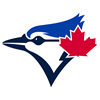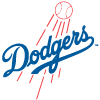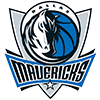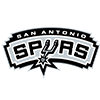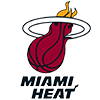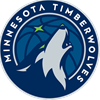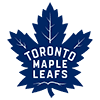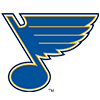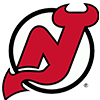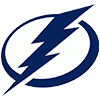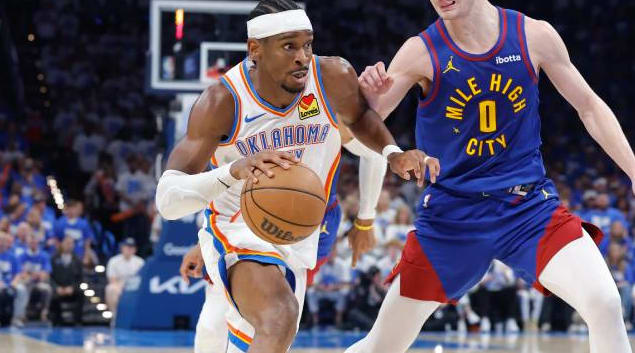The Knicks have two players that have finished in the top-10 in the MVP vote in one of the last two years.
The Knicks were a chic offseason pick to become contenders in the East this year.
The Knicks absolutely stink.
While all three of the previous statements are true, it's the last one that trumps the others and leads to confusion. How could a team have two MVP candidates and be this bad? Is this another example of the lockout-induced slow start phenomenon that's plaguing the league? The Lakers started slow, the Celtics just woke up last week, the Mavs are still hibernating - are the Knicks another underachieving contender that just needs to wake up?
Short answer - no. The Knicks aren't contenders that just need to wake up. They might be underachieving at the moment due to Carmelo Anthony and Amar'e Stoudemire battling nagging injuries - I expect them to improve enough to make the playoffs (especially if Baron Davis gets healthy and plays to his abilities), but they aren't going anywhere near anyone's championship game. Yet, they sport two of the "best" players in the league - two bona fide "superstars." They even went out and got a strong interior defensive player in Tyson Chandler to bolster the defense this year. Why aren't they better?
My answer, should you choose to accept it, is that Stoudemire and Anthony are grossly overrated. They don't have superstar impact. They shouldn't have been MVP candidates. They are poster-children for
The Knicks have two players that have finished in the top-10 in the MVP vote in one of the last two years.
The Knicks were a chic offseason pick to become contenders in the East this year.
The Knicks absolutely stink.
While all three of the previous statements are true, it's the last one that trumps the others and leads to confusion. How could a team have two MVP candidates and be this bad? Is this another example of the lockout-induced slow start phenomenon that's plaguing the league? The Lakers started slow, the Celtics just woke up last week, the Mavs are still hibernating - are the Knicks another underachieving contender that just needs to wake up?
Short answer - no. The Knicks aren't contenders that just need to wake up. They might be underachieving at the moment due to Carmelo Anthony and Amar'e Stoudemire battling nagging injuries - I expect them to improve enough to make the playoffs (especially if Baron Davis gets healthy and plays to his abilities), but they aren't going anywhere near anyone's championship game. Yet, they sport two of the "best" players in the league - two bona fide "superstars." They even went out and got a strong interior defensive player in Tyson Chandler to bolster the defense this year. Why aren't they better?
My answer, should you choose to accept it, is that Stoudemire and Anthony are grossly overrated. They don't have superstar impact. They shouldn't have been MVP candidates. They are poster-children for the concept that if a player scores a lot of points, he's automatically considered to be among the best in the league, when that's just not true. Scoring is a skill, just like passing, or handling the ball, or on-ball defense, or help-defense, or rebounding, or - you get the idea. Scoring is just one of the many things a player can do to help his team win, but for some reason in the eyes of so many scoring trumps everything else. And it's just not so.
I hear people all the time say scoring is the most important skill, because you can't win a game without points. But in reality, scoring isn't what's so valuable - creating points is what's key on offense. And "creating points" is not the same as scoring. It's not even the same as scoring at a high efficiency. If you want to give yourself a headache (but in a good way), check out Chamberlain Theory: The Real Price of Anarchy in Basketball, an article about how utilizing Wilt Chamberlain as a volume scorer could have been hurting his team even with Wilt scoring at good efficiency.
The concept is that a basketball team is going to score a certain amount of points by default. You could put any player there, and that team is still going to score a certain number of points. The difference, then, between a good offense and a bad one is the amount of points that the good offense generates BEYOND that default value. For example, an NBA team of replacement level players is still going to score, say, 90 points per 100 possessions, while a great offense might score 110 points per 100 possessions... which means the ability to generate those extra 20 points is what makes them great. And the same is true in reverse, on defense. You with me so far?
The problem with Wilt Chamberlain in that article, then, is that Chamberlain's huge scoring numbers were coming from the points that the team was ALREADY GOING TO GENERATE. Because he was taking most of the shots, and the offense was configured to get HIM good shots instead of his teammates, the only way that the offense could score effectively was if Wilt did it. But Wilt, no matter how productive he was, could NOT shoot and score on every possession. And since his teammates were never put in position to score effectively, they essentially became worse playing with Wilt than they would have been on their own. And the net result was a team offense that wasn't very good despite having the most dominant volume scorer in NBA history on it.
And this isn't just an esoteric concept. You see it backed up in the actual team results. In 1965 Chamberlain played almost exactly half of the season with the Warriors before being traded and playing the second half of the season with the 76ers. Chamberlain averaged 38.9 points on 50% FG with the Warriors, and 30.1 points on 53% FG for the 76ers that season. The Warriors were 10-28 in games the Chamberlain played that year, then went 6 – 30 after Wilt was gone. Similarly, the 76ers were 21 – 20 when they acquired Chamberlain, then finished the season 19 – 20 after the Chamberlain trade. You notice anything? The most dominant scorer in the league switched from one team to another, and NEITHER TEAM CHANGED. Both teams had their records stay the same with or without Wilt, and the argument is that it's because Wilt's dominant scoring wasn't really adding anything to his team's offense. Contrast 1965 Chamberlain with Bill Walton, who in 1977 and 1978 averaged "only" 18.7 ppg on 53% FG but was the difference between the Trail Blazers running the league (91 – 31 record with Walton) and coming in as a basement team (16 - 26 record without Walton). Wilt in 1965 was a dominant scorer and box-score monster. But Walton in the late 70s was making a much bigger impact on his team's ability to win games. And thus Walton in those years was the much better player than '65 Wilt, making a lie of the box scores.
Both Stoudemire and Anthony are present-day examples of the same phenomenon. And you can compare them with modern day players who really DO produce the superstar impact like, say, Jason Kidd. Kidd consistently finished near the top of the league in +/- scores when he was in his prime. So when Kidd left the Suns for the Nets in 2001, do you know what happened? The Suns got 15 games worse and the Nets got 26 games better (+41 wins net effect). That's impact.
On the other hand, Anthony consistently finishes average to slightly-above-average in +/- studies. In this 2008-2011 APM study, Anthony and Stoudemire both rank around 100th in the NBA +1.9 and +1.8, respectively. So when Anthony left the Nuggets for the Knicks, we should have been able to guess what would happen. The Nuggets were just fine, and the Knicks didn't really get any better. Because Melo is a great scorer, but he's just not a huge impact guy. And Stoudemire's impact level is similar to Anthony's. So when you take two slightly above average impact guys and make them the centerpieces of the team, do you know what you end up with?
You guessed it. The 2011 and 2012 Knicks.
Around the League
•Anthony back, Stoudemire limping: Despite what I wrote above about their questionable impact, there can be no doubt Anthony and Stoudemire are stars in the realm of fantasy basketball. Anthony returned on Tuesday after a two-game absence (ankle), and turned in a 25-point (9-for-14 FG), six assist, two treys performance in 33 minutes of action. This marked Anthony's first game shooting over 50% from the field since January 12, and Anthony said that his time off helped return the pop to his legs. Meanwhile, Stoudemire tweaked his ankle on Tuesday during halftime warm-ups but was able to come out and play in the second half. Stoudemire missed practice on Wednesday, but is expected to play Thursday against the Bulls.
•Rondo resting/Pierce en fuego:Rajon Rondo has missed eight straight games with a wrist injury, having suffered a setback to what was originally diagnosed as a minor injury. Rondo is expected to return to the court as soon as Friday against the Knicks, and Celtics coach Doc Rivers has already stated that Rondo's last couple of games missed have been precautionary and if it were the playoffs he would likely have already been playing. Meanwhile, in Rondo's absence, his Big Three elders have shown they still have the skills to operate without him. The Celtics have been running their offense primarily through Paul Pierce and Kevin Garnett, which has resulted in them averaging a combined 11.2 assists over the last five games. Ray Allen returned from injury three games ago, and since his return has also chimed in with 5.3 assists per game. Pierce, in particular, has benefitted from being more of the offensive focal point to the tune of 22.9 points, 7.7 assists, and 6.4 rebounds over the last seven with Rondo out. Rondo's return likely means the Big Three go back to being primarily finishers, but this eight game Rondo-less stretch has shown that the old guys can still generate their own offense even when their primary facilitator goes down.
•Nash in and out:Steve Nash posted a season-high 30 points with 10 assists on Wednesday against the Hornets. On the down side, this was Nash's first game back after missing Monday's tilt with the Mavericks due to a left thigh contusion. This is the second time in the last three weeks Nash has missed a game with a thigh injury. In both instances Nash only had to miss one game, and on the season he is still averaging a strong 15 points and 10 assists on excellent shooting percentages. On the down side, Nash's 1.1 made 3-pointers per game are down from the 1.5 he averaged in 2010 and are only half of the 2.2 that he averaged in 2008. Nash will be 38 next week, and when you combine the added injury risk with the slightly down numbers it adds up to a player that is a good sell-high candidate before he potentially wears down this season.
•Wright finding range: After a slow start in the new Mark Jackson coaching era, Dorell Wright has increased his 3-point shooting volume of late and found his stroke. Wright has 18 made treys in his last six games, a period in which he has averaged 15.2 points, 4.0 boards, and 3.0 treys, numbers very similar to his breakout averages from a season ago. He, along with David Lee, has gone from "I'm worried about his production under Jackson" to "buy-low candidate" in the last few weeks.
•Bogut done:Andrew Bogut has been declared out for eight to 12 weeks with a fractured ankle, a range that puts his potential return somewhere between March 23 and April 20. The NBA season ends April 26, so there's a very real chance that Bogut could be out for the season. I have not yet cut Bogut in the league that I have him, but he has been cut in several of my leagues, and if you don't have an IR slot in your league, it's definitely justifiable to cut him loose.
•Gordon cut-worthy?Eric Gordon has also been cut in one of my leagues, but I'm not quite ready to endorse that for him. I'm on record as being worried about the severity of Gordon's knee injury long before his most recent prognosis of three-to-six more weeks out. Unspecified knee injuries that cause consistent swelling and missed time early in the season are never good news. On the other hand, based on that prognosis Gordon could potentially be back on the court by the All-Star break. As such, I'm not quite ready to give up on Gordon completely - I even picked him up in the league where he was cut.
•Noah waking up: After a slow start to the season, Joakim Noah seems to have found his legs in recent weeks. Noah had a two-point/seven-rebound stinker on Wednesday, but that broke a streak of five straight double-doubles in which he had averaged 13.2 points, 12.6 rebounds and 4.5 assists. Noah seems to be benefitting from increased touches with Luol Deng out, and is finally putting up the numbers that made him a popular early/mid-round pick on draft day.
•Beasley back?Michael Beasley returned from a foot injury last week, but came back to a reduced role off the bench. Beasley has shown some positive signs since his return, though, with an 18/12 double-double one game followed by a 34-point explosion the next. Beasley showed last season that he has the capability to be a consistent 20-point scorer, but he started this season much slower even before injuries knocked him out. Beasley could be an interesting buy-low candidate for the speculators out there, but he is such a volatile player and has such competition for playing time that it's risky to assume that he can still produce consistently at last season's level.
•Brooks out indefinitely: Marshon Brooks missed three games with an Achilles injury then returned, only to immediately break his toe. There's no definite prognosis on how long he'll be out, but on the positive side it's the little toe on his foot. At this point, my best advice is to keep an eye on the situation... check out the next installment in Jeff Stotts' Injury Analysis column to see if he goes more in depth about Brooks' injury and the usual prognosis for injuries of this type.
•Hill out indefinitely:George Hill has a small chip fracture in his left ankle and is out indefinitely. While likely not as severe as the fractures that have sidelined Bogut and Brooks, any time you see the words "fracture" and "out indefinitely" in the same sentence it's worrisome. For a borderline fantasy producer like Hill, it could be enough to warrant dropping him for a better option.
New Additions
•Drew Gooden (61% owned in Yahoo leagues): Gooden's ownership has gone up drastically in the week since Bogut went down for the season, but just in case he's still available in your league you should go get him. Gooden has averaged 20 points and nine boards since Bogut's injury, and his previous stints when Bogut has been out suggest Gooden can maintain a scoring average in the upper teens moving forward.
•Vince Carter (48% owned): In the week since returning from injury Carter has shown his first life on the season. He posted back-to-back 21-point efforts, and is averaging 15.5 points, 3.7 boards, 3.0 assists, 2.0 treys and 1.3 steals over the last week. Outside of the 3-pointers, those averages are sustainable if Carter has his legs under him moving forward.
•Rodrigue Beaubois (43% owned): Beaubois has moved into the starting lineup for the Mavs, replacing an injured Jason Kidd. Beaubois has averaged 13.3 points, 6.3 assists, 3.8 boards, 1.0 steals and 2.0 blocks in four games as a starter thus far. All of those numbers outside of blocks are sustainable for as long as Beaubois gets starters minutes, which could conceivably continue even after Kidd (calf) returns since Kidd will be 39 before the season is out and has already missed seven of the last 15 games due to various injuries.
•Chase Budinger (37% owned): Immediately after I typed this, Budinger was held scoreless on Wednesday night. Nevertheless, Budinger is still a viable pickup as he battles for minutes with Chandler Parson and Courtney Lee. Entering the season Budinger was the starter, and in the three games leading up to Wednesday Budinger averaged 17.7 points and 2.0 treys in only 23 minutes. If he finds his shooting stroke consistently, Budinger is the Rockets small forward with the most long-term upside this season.
•Mike Dunleavy Jr. (10% owned): Dunleavy has stepped up his role of late, scoring 15 or more points in four of his last six outings. The Bucks have issues scoring the ball, and with the team consistently battling injuries the lane is open for Dunleavy to stake out a bigger piece of the pie.
Best Players in NBA history
In this section of the Lab I pick one of the top players in NBA history as voted on in this project and discuss some of his career accomplishments - in other words, what made him so great that he deserves a spot among the greatest? This week's player is Wilt Chamberlain, the most dominant stat sheet stuffer in NBA history. As I alluded to in the opening of the Hoops Lab this week, there is a school of thought that Chamberlain's cartoonish box score exploits may not be indicative of his actual value. But the really interesting thing about Chamberlain is that he had the ability to change his game to fit almost any style... he could do anything on the court. And when Coach Alex Hannum tailored Chamberlain's role into more of a dominant defender/facilitator, Chamberlain's impact went through the roof as he anchored one of the best teams in history.
Want some interesting facts on Chamberlain? There are almost too many to list here:
1. Chamberlain has the four highest scoring average seasons in NBA history, five of the top-six, and seven of the top-17. Chamberlain also has the three highest rebounding average seasons in NBA history, six of the top-seven, and 10 of the top-20.
For the rest of Chamberlain's highlight facts, be sure to check out the blog.
Keeping up with the Professor
If you're interested in my takes throughout the week, you can follow me on Twitter @ProfessorDrz. Also, don't forget that you can catch me on the radio on Rotowire Fantasy Sports Today with Chris Liss and Jeff Erickson on XM 87, Sirius 210.










